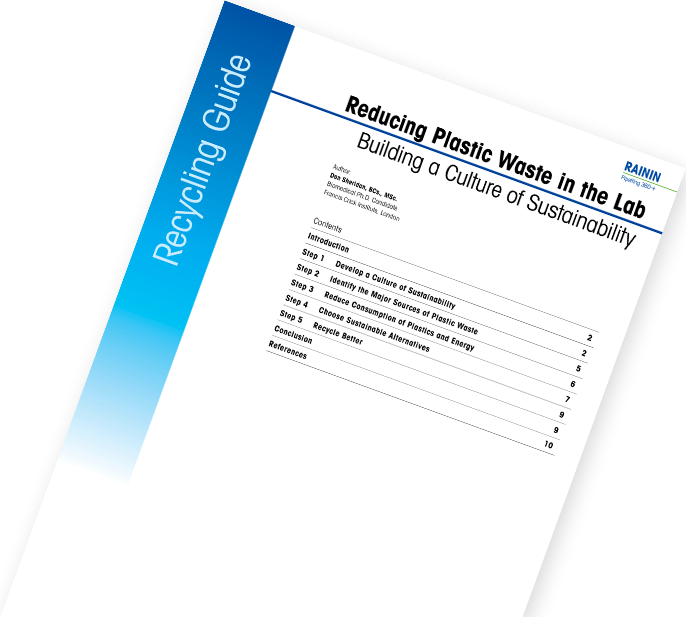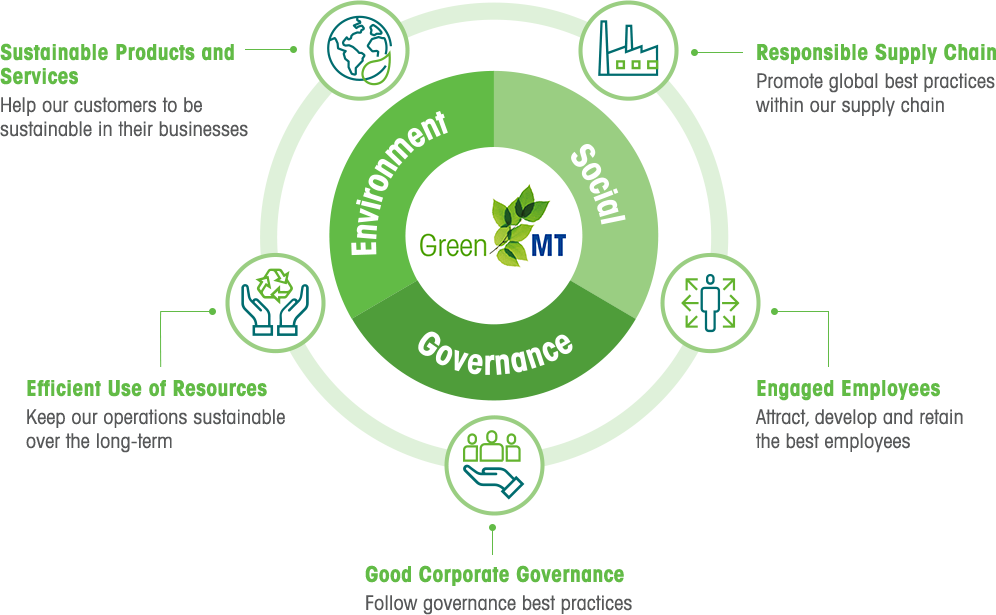Rainin operates in a plastic-intensive industry as we fulfill
our mission of supporting life sciences researchers in their
most ambitious work. To help our customers contribute to
a more sustainable future, Rainin is continuously working
to reduce its environmental footprint by minimizing resource
use across our products and operations.
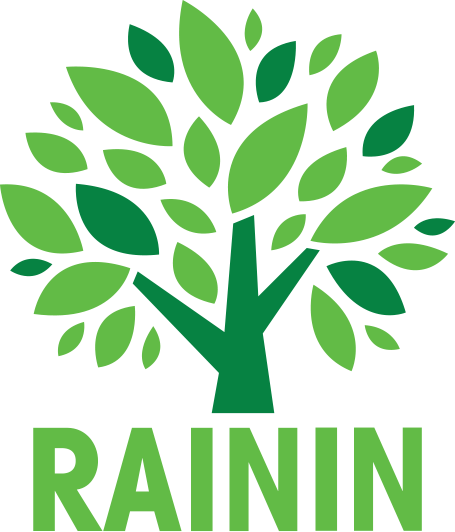
We minimize our use of resources
– in our products, manufacturing,
packaging and transportation –
above all else. We strive to lower
our carbon footprint.
We develop durable products
that are meaningfully recyclable
at the end of their useful lives.
When we must use resources,
we aim to eliminate waste.
We reuse (and encourage reuse)
as much as possible.
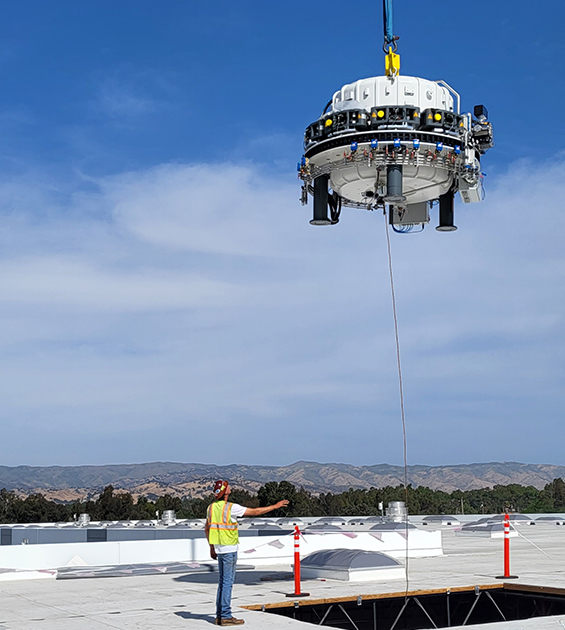
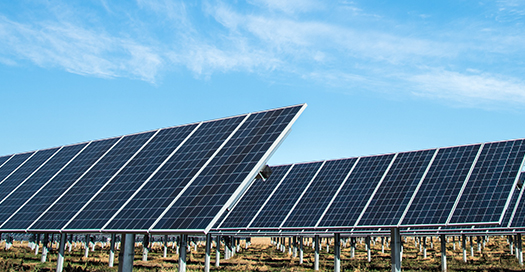
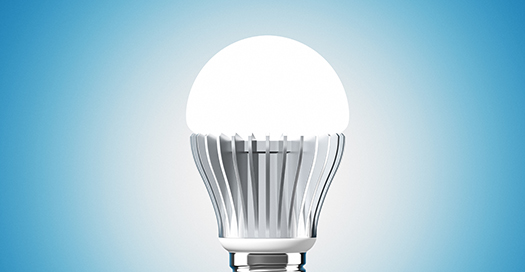
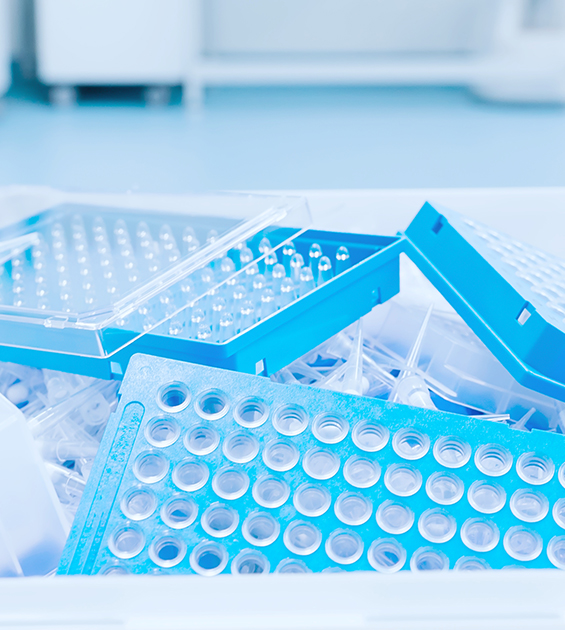
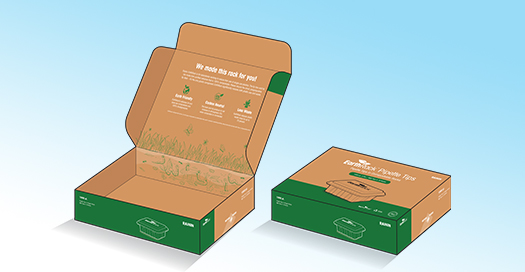
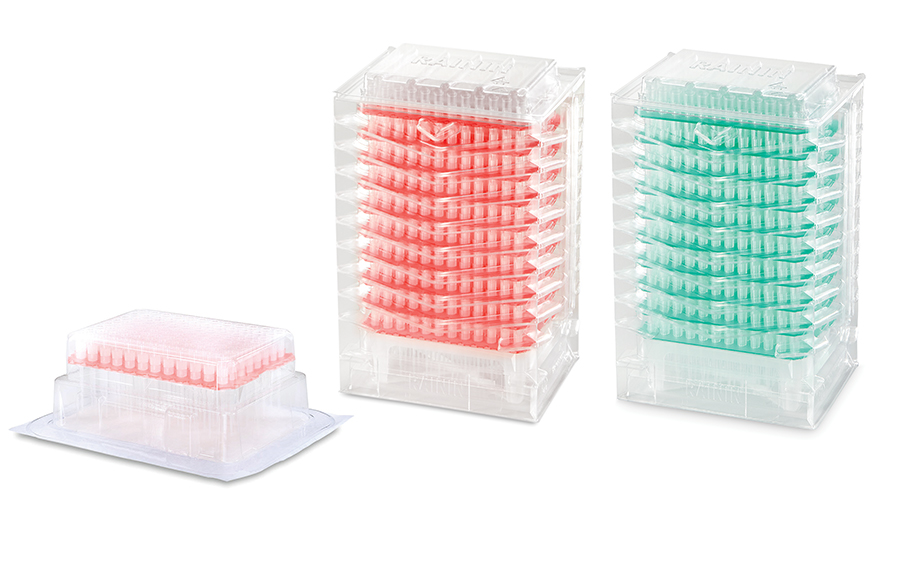
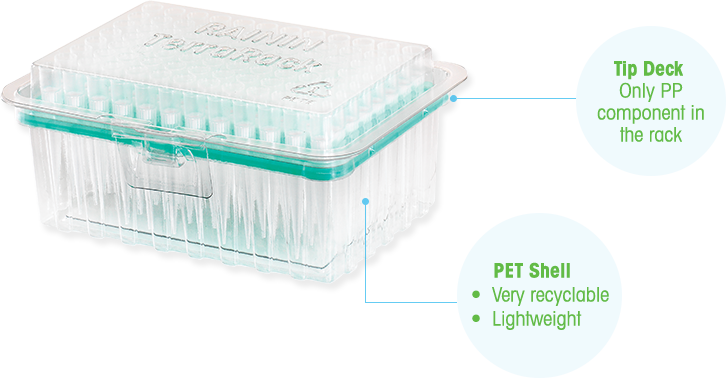
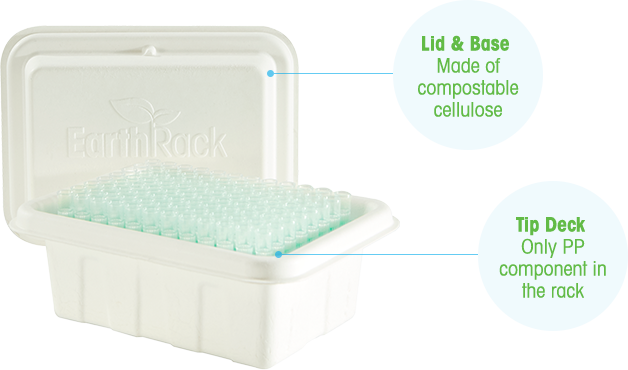

Biological, medical and agricultural labs are estimated to produce
around 5.5 million tons of plastic waste annually. Combined, that
equals the weight of about 67 cruise liners! We can do better by
adopting a culture of sustainability throughout our organizations.
Download our guide to learn how.
